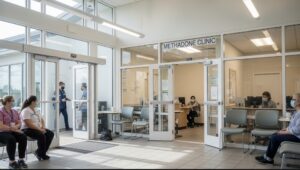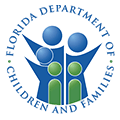In the journey of recovery from addiction, addressing trauma is often a vital component. Trauma can manifest in many forms, from childhood experiences to adult traumas, and it often underlies addiction as a coping mechanism. At Beachcomber Recovery Center in Boynton Beach, Florida, we understand the profound impact of trauma on individuals’ lives and are committed to providing trauma therapy that restores hope and fosters healing. In this article, we’ll explore the transformative power of trauma therapy in Boynton Beach and how it helps break the chains of addiction, restoring hope for a brighter future.
Understanding the Role of Trauma in Addiction
Trauma is deeply intertwined with addiction, often serving as a root cause or contributing factor to substance abuse. Individuals who have experienced trauma may turn to drugs or alcohol as a way to numb painful emotions, cope with overwhelming memories, or regain a sense of control in their lives. However, these maladaptive coping mechanisms ultimately perpetuate the cycle of addiction, leading to further pain and suffering.
At Beachcomber Recovery Center, we recognize that addiction is often a symptom of deeper underlying issues, including unresolved trauma. Our trauma therapy program is designed to help individuals address and heal from past traumas, empowering them to break free from the grip of addiction and reclaim their lives.
Providing a Safe and Supportive Environment for Trauma Therapy
Central to trauma therapy at Beachcomber Recovery Center is creating a safe and supportive environment where individuals feel comfortable exploring their past experiences and emotions. Our therapists are trained to create a nonjudgmental space where clients can share their stories, process their feelings, and begin the journey of healing.
Group therapy sessions provide a particularly powerful setting for individuals to connect with others who have experienced similar traumas. Through sharing their experiences and supporting one another, clients gain a sense of validation, understanding, and solidarity that is essential for healing from trauma.
In addition to group therapy, our trauma therapy program may also include individual counseling sessions, where clients can work one-on-one with a therapist to delve deeper into their personal experiences and develop coping strategies for managing trauma-related symptoms.
Utilizing Evidence-Based Therapeutic Approaches
At Beachcomber Recovery Center, we utilize evidence-based therapeutic approaches to trauma treatment that are effective in promoting healing and recovery. These approaches may include cognitive-behavioral therapy (CBT), eye movement desensitization and reprocessing (EMDR), dialectical behavior therapy (DBT), and mindfulness-based interventions.
Cognitive-behavioral therapy helps individuals identify and challenge negative thought patterns and beliefs related to their trauma, empowering them to develop healthier ways of coping with distressing emotions. EMDR is a specialized therapy that helps individuals process and resolve traumatic memories, reducing their emotional intensity and associated symptoms.
Dialectical behavior therapy teaches individuals skills for managing emotions, coping with stress, and improving interpersonal relationships, providing practical tools for navigating the challenges of recovery from trauma and addiction. Mindfulness-based interventions, such as meditation and relaxation techniques, promote present-moment awareness and self-compassion, helping individuals cultivate inner peace and resilience in the face of adversity.
Addressing Co-Occurring Disorders and Dual Diagnosis
Many individuals who have experienced trauma also struggle with co-occurring mental health disorders, such as depression, anxiety, or post-traumatic stress disorder (PTSD). At Beachcomber Recovery Center, we recognize the importance of addressing co-occurring disorders in conjunction with trauma treatment to ensure comprehensive care and lasting recovery.
Our trauma therapy program is integrated with our dual diagnosis treatment services, allowing us to provide personalized care that addresses both the underlying trauma and any co-occurring mental health issues. By addressing all aspects of the individual’s experience, we can help clients achieve greater stability, resilience, and well-being in their recovery journey.
Fostering Meaningful Connections and Support Networks
Central to trauma therapy at Beachcomber Recovery Center is fostering meaningful connections and support networks that provide individuals with the encouragement, validation, and empowerment they need to heal and grow. Our group therapy sessions provide a space for individuals to connect with others who have experienced similar traumas, offering mutual support, understanding, and empathy.
In addition to group therapy, we encourage clients to participate in support groups and alumni networks, providing ongoing support and connection throughout their recovery journey. By building supportive relationships and connections, individuals can find strength, inspiration, and hope in the shared experience of healing from trauma and addiction
Exploring Trauma-Informed Care
At Beachcomber Recovery Center, we prioritize trauma-informed care in all aspects of our treatment approach. Trauma-informed care recognizes the prevalence and impact of trauma on individuals’ lives and seeks to create an environment that is sensitive, safe, and empowering for trauma survivors. Our staff undergo specialized training in trauma-informed care to ensure that all interactions and interventions are informed by a deep understanding of trauma and its effects.
Trauma-informed care emphasizes the principles of safety, trustworthiness, choice, collaboration, and empowerment, creating a therapeutic environment where individuals feel respected, validated, and supported in their healing journey. By integrating trauma-informed practices into our trauma therapy program, we help individuals feel more comfortable and secure in exploring their trauma and working toward recovery.
Promoting Empowerment and Agency
Central to trauma therapy at Beachcomber Recovery Center is promoting empowerment and agency in individuals’ recovery journeys. We believe that healing from trauma and addiction is a deeply personal and empowering process that requires individuals to take an active role in their recovery. Our therapists work collaboratively with clients to identify their goals, strengths, and resources, empowering them to make informed choices and decisions about their treatment and recovery.
Through trauma therapy, individuals learn to reclaim their sense of agency and control over their lives, breaking free from the chains of trauma and addiction and reclaiming their power and autonomy. By fostering a sense of empowerment and self-efficacy, we help individuals build the resilience and confidence they need to overcome obstacles and thrive in recovery.
Continued Support and Aftercare
Recovery from trauma and addiction is a lifelong journey that requires ongoing support and care. At Beachcomber Recovery Center, we are committed to providing continued support and aftercare services to individuals as they transition from treatment to independent living. Our aftercare program offers a range of services and resources, including individual counseling, support groups, sober living options, and alumni programs, to help individuals maintain their sobriety and well-being in the long term.
Our aftercare services are tailored to meet the unique needs and goals of each individual, providing personalized support and guidance as they navigate the challenges of life after treatment. Whether individuals need help finding stable housing, securing employment, or connecting with community resources, our aftercare team is here to help them every step of the way.
In addition to formal aftercare services, we also encourage individuals to build and maintain a strong support network of family, friends, and peers who can offer encouragement, accountability, and companionship in their recovery journey. By surrounding themselves with positive influences and sources of support, individuals can strengthen their resilience and maintain their sobriety and well-being over time.
Conclusion
In conclusion, trauma therapy in Boynton Beach is a powerful and transformative resource for individuals seeking to heal from past traumas and overcome addiction. At Beachcomber Recovery Center, we are committed to providing trauma therapy that restores hope, empowers healing, and fosters resilience in individuals’ recovery journeys.
Through a combination of evidence-based therapeutic approaches, holistic wellness practices, and supportive community connections, our trauma therapy program offers a comprehensive and compassionate approach to healing trauma and addiction. If you or someone you love is struggling with the effects of trauma and addiction, we are here to help. Contact us today to learn more about our trauma therapy program and take the first step toward a brighter future.






